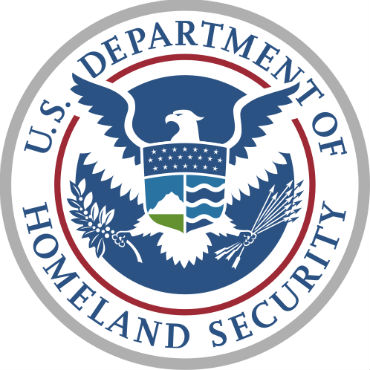What does a military boss mean for DHS?
Former DHS managers say John Kelly is a solid choice to lead the agency, but he faces some of the same old challenges -- and could encounter some steep learning curves.

President-elect Donald Trump's choice of retired Marine general John F. Kelly is a solid one, according to two recent DHS managers, but as the new leader of civilian agency, he will have to shift gears a little.
The 66-year-old retired general once headed the Southern Command, which includes military efforts to partner with South American and Caribbean nations to stop the cross-border flows of drugs, weapons and other illicit traffic. That gives him particular insight into one of the Department of Homeland Security's premier missions of border control, but does little to prepare him for the agency's other missions and everyday detail, according to former agency managers.
Along with a mandate from his boss to "fix" border security, Kelly will have to manage smaller, but crucial, agency management intricacies, such as the DHS' commitment to the modernization of its financial management infrastructure and its IT legacy backbone issues, said Raphael Borras, former DHS under secretary for management.
"All those are challenging issues that he must confront early on," said Borras, who now leads consulting firm A.T. Kearney's federal civilian sector efforts for the Americas region.
Some DHS' operations are modeled on the Department of Defense, Borras said, but Kelly needs to understand that there are fundamental differences remain between the two -- including the fact that DOD is about ten times as big as DHS.
"DOD largely acquires things -- airplane, ships. DHS primarily acquires professional services," said Borras. This can require a different approach to acquisition. DHS, he said, is also mostly a law enforcement agency that is very transactional in nature, inspecting and scanning passengers, luggage and cargo.
"It's a different procurement environment," he said. It's also a different budgeting environment. "There are sequestration caps," which can make discretionary funds difficult, he warned.
Chris Cumminsky, former acting undersecretary for management at DHS and now CEO at Cumminsky Strategic Solutions, said Kelly's work on the Homeland Security Advisory Council in the last few months has offered him some insight into the agency.
Kelly joined into the council in June, which provides DHS with independent advice on the spectrum of homeland security operations.
However, that advisory work hasn't given Kelly first-hand experience with the complex brand of oversight to which DHS is subjected. The agency answers to over 100 congressional oversight committees and subcommittees, which have overlapping jurisdiction for DHS' many activities.
Both Cumminsky and Borras said the congressional oversight structure has been one of the most exasperating challenges for past DHS leaders, requiring them to address a constant and loud drumbeat for testimony and hearing appearances. And, despite rumblings to the contrary from current House Homeland Security Chairman Rep. Michael McCaul (R-Texas), the former DHS executives don't think that the oversight structure will change anytime soon.
"It's a tough nut to crack," said Cumminsky.
Kelly could have more luck pushing plans to centralize cybersecurity authority at DHS, drawing on the Pentagon's efforts to create a cross-cutting Cyber Command. Cumminsky suggested that the planned reorganization of National Protections and Programs Directorate into a cybersecurity focused agency should be one of Kelly's priorities.
DHS probably will see a stable or increased budget under the incoming Trump administration, according to Matt Hummer, director of analytics at contracting information service Govini.
In its lifetime, DHS "has been a blessed child" when it comes to budgets, Hummer said. "It mostly skated through sequestration." But the agency should not expect a blank check. While DHS may still see small upticks in total budgeting, Hummer said, President-elect Trump will find places to cut inefficient spending.
DHS' "Unity of Effort" initiative, which outgoing Secretary Jeh Johnson (formerly general council at DOD) modeled on Pentagon programs to get the far-flung DHS enterprise to act in a more unified fashion, will continue in some form under Kelly, according to Hummer. "That concept is not new to Kelly," he said.
Once the new secretary gets a feel for component agencies operationally he will look to leverage technology rather than "throwing people" at issues, Hummer predicted. "He will invest more in platforms and technology" and will probably take a more pro-active approach than the current administration's "risk-based" reactive approach, Hummer said. Govini is standing by its October study on DHS budgets and trends, said Hummer. That study said NPPD was set to sharpen it cybersecurity focus in the coming fiscal year, budgeting $471 million for the National Cybersecurity Protection System, its intrusion detection system that shares information across civilian agencies.
DHS also budgeted almost $274 million to speed up all three phases of its Continuous Diagnostics and Monitoring program during the period, as well as $283 million to develop analysis for critical infrastructure threat situational awareness and $211 million to support the National Cybersecurity and Communications Integration Center.
That kind of spending, the study said in October, would likely continue under either administration because the stakes are too high not to. The rise of state-backed actors intent on breaking into government and private networks is "simply far too large to ignore," Govini said.





